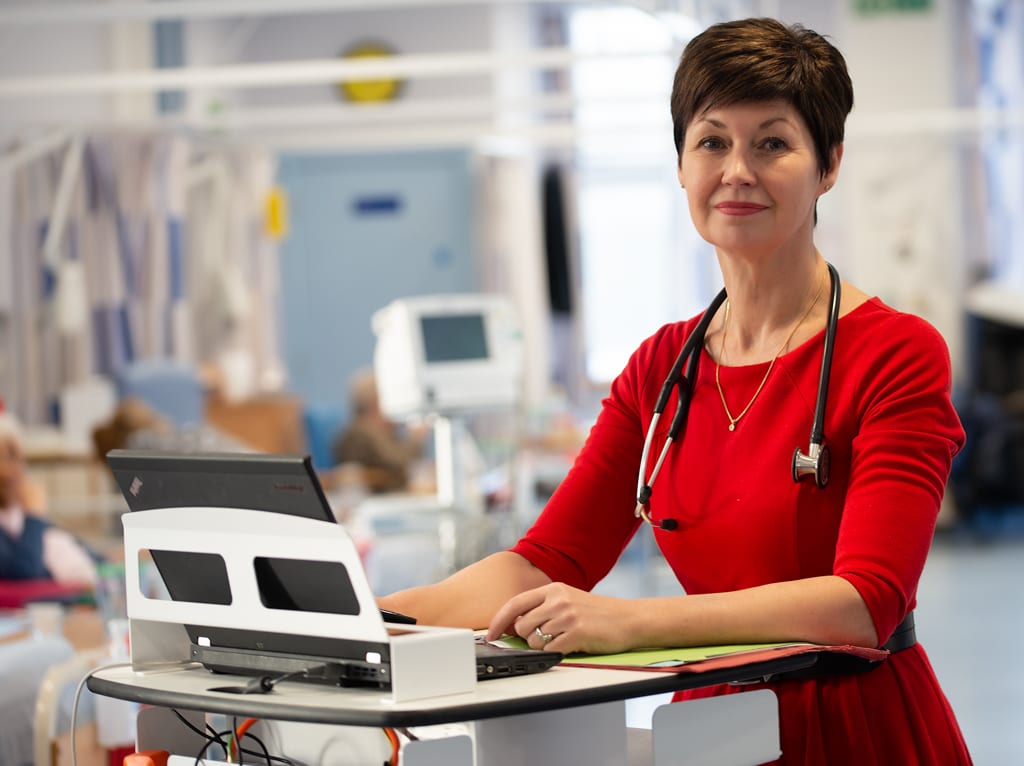Protecting our patients from the secondary harms of COVID-19
02 Oct 2020
Despite the re-opening of elective and emergency services, we know our members are concerned that fewer patients have been seeking the advice of their GP or visiting their local accident and emergency unit. We have heard stories from patients and their families that they either didn’t want to be an additional burden on the NHS during this vital time, or that more commonly, they felt it was unsafe to do so.

This week we passed the milestone that more than 1 million people across the world have died from COVID-19 (writes Professor Jackie Taylor). Since it was first identified late last year, and despite the efforts of dedicated doctors and public health experts across the globe, the coronavirus has killed over two hundred thousand people in the USA, nearly 150 thousand in Brazil and almost 100 thousand people in India. Here in the UK it’s estimated that over 40 thousand deaths have already been caused by the virus.
While this considerable loss of life is at levels beyond that normally expected, it is certain that these figures underplay the cost of this pandemic to the public. This is clear, because these figures account for the direct human cost of COVID-19, and not the associated damage that is being caused to the public’s general health as a consequence of the pandemic. Most routine hospital services like cancer screening and MRI scans were cancelled to allow for health services like our NHS to concentrate on patients in the first wave of this crisis. Many of these services have restarted safely with new processes and procedures in place to protect our patients.
Despite the re-opening of elective and emergency services, we know our members are concerned that fewer patients have been seeking the advice of their GP or visiting their local accident and emergency unit. We have heard stories from patients and their families that they either didn’t want to be an additional burden on the NHS during this vital time, or that more commonly, they felt it was unsafe to do so.
The consequences of this are concern us. It is clear that unless we can get the message across to our public that our health services are safe and open for business, we will continue to have to pick up the pieces when patients come to us at a time often too late to help. We have all heard of patients with chest pain who resisted going to hospital because of the pandemic who either attend too late for PCI procedures or worse still succumbed before they reach hospital. This mortality is in excess of that caused directly by the virus.
We believe our NHS is safe. Huge amounts of energy and investment has been made to ensure that hospitals, GP surgeries and OP clinics are ready to see patients in a way which protects them from the virus. We have adapted to run online and phone consultations. We believe PPE supplies are adequate. Cleaning regimes, processes and systems have been reviewed to reduce risk at every step of the patient journey. Staff have been trained in how to minimise risk, and the NHS is already working hard to clear the backlog of cases we’ve seen from the pause in hospital services earlier this year.
We agree that patients should be seen as soon as possible. Each delay in seeking the right medical support puts people at risk, and increases the pressure on the NHS. Patients who come forward for help later need more time and resources to treat them, sometimes with a poorer outcome. It is harder to restore patients to full health if they take too long to come forward for treatment. It is even harder to restore their confidence in the safety of the Health Service.
We all need to get the message across to our patients: don’t wait too long to seek treatment if you’re ill. Doing this will protect and help yourself.
Latest news and statements
Key priority areas
Topics
- Workforce
- Wellbeing
- Equality, Diversity and Inclusion
- Climate Change
- Health Inequalities
- College
- Obesity
- COVID-19
Archive
Key links
Tweets by @rcpsglasgow